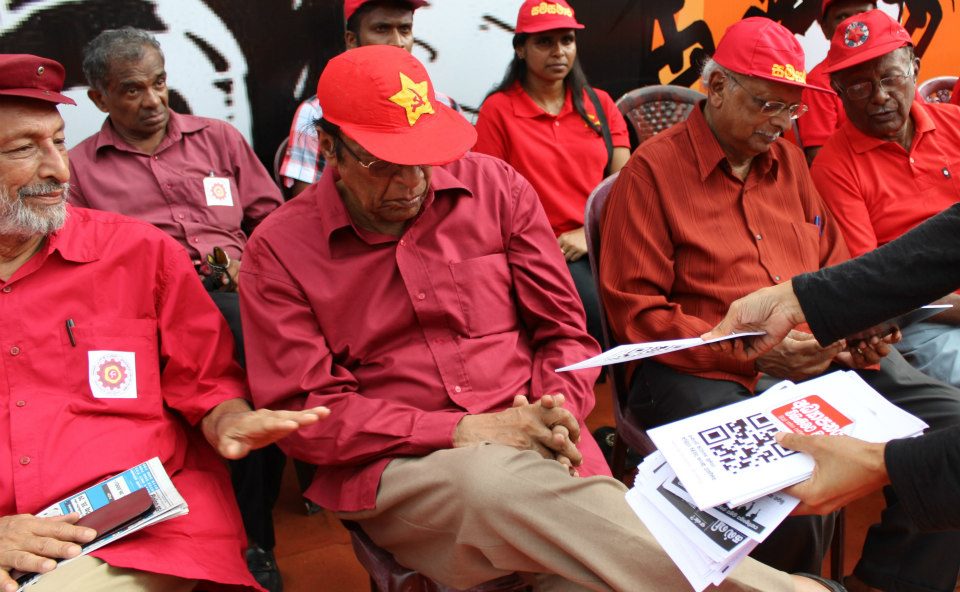Download English Version
The fundamental role of a contemporary university is teaching and research based
on the principle of the search for unbiased truth. This role is facilitated by intellectual
freedom in carrying out teaching and research, autonomy of universities, evolution of
various disciplines with inherent and independent standards/priorities and internationalism.
Furthermore, the Lima and Bologna declarations highlight the importance of having
universities as autonomous organizations that are attractive to students and researchers
across various cultures.
However, due to the deterioration of autonomy and increasing politicization, Sri
Lanka's universities are facing the risk of losing their University status (as understood in a
global context). A state that invests in quality higher education will, in addition to ensuring
adequate resources for universities also do its utmost to ensure academic freedom and
autonomy.
Clearly the government of Sri Lanka is now treating university education as a
commodity, universities as corporate entities and the academic administrators of those
universities (VCs, DVCs, Deans ect.) as business managers. The government expects only
that university administrators fall in line with their agenda. To this end, the state expects
university administrators to:
1. Ensure faculties that can be controlled at will
2. Provide minimum resources and cut costs and thereby maximize ‘profit’
3. Fundamentally change the goal of education to meet market needs by promoting
employability as the sole criterion of a quality tertiary education
4. Gradually introduce fee levying courses so that ability to pay rather than
academic quality becomes the criterion for university admission.
5. Use universities as a job market for minions of politicians
This will effectively turn universities into degree shops where features associated
with reputed universities mentioned previously such as autonomy and academic freedom are
actively suppressed. This is not only the agenda for the envisaged private universities, but
also for the existing state universities.
Having minions of unscrupulous politicians at key positions in administration is
now taking its toll of the entire Sri Lankan University system as Vice Chancellors are
appointed not on academic merit but solely on political connections. These institutions are
now depicted in the public's eye in negative hues due to unprecedented politicization and
deterioration of autonomy. This is despite the efforts of FUTA and its sister unions to
enlighten the public and exert relentless pressure on the administrators and the government
to realise and respect the importance of university autonomy and academic freedom.
When the last TUA action of FUTA ended, it was agreed to have senate meetings at
each university on autonomy, academic freedom and politicization. Despite this, the
government continues to attempt to violate the autonomy of our universities taking political
interference to an unprecedented level. The continuing controversy with the appointment of
the Vice-Chancellor of the UoC is one case in point. The UoP one of the oldest and most
prestigious of Sri Lankan universities (along with the UoC) has also not been spared. The
government appointed the least qualified candidate as VC of UoP, highlighting badgovernance
and vested interests. In an attempt to assert pressure on the VC to comply with
existing procedures, the Federation of Peradeniya University Teachers’ Associations
(FPUTA) officially met the newly appointed VC and communicated the importance of
winning the trust of the academic community he was appointed to lead. But this was not to
be: the DVC appointment at UoP which followed also reflected the will of government
antagonistic relations with both academics and students due to high handed and unethical
behaviour and no right-thinking administration would have selected such an individual to a
position of great responsibility. In protest, the Peradeniya Academic community through the
Union submitted a petition signed by members of all faculties, requesting the Vice
Chancellor to replace the Deputy Vice Chancellor. This was ignored.
To stall these unprecedented breaches on autonomy, the Peradeniya University
Community through FPUTA staged a token strike on 17th of December 2013. As there was
no positive response from the administration, the members withdrew from all the voluntary
positions that directly dealt with the Deputy Vice Chancellor.
FPUTA also resolved that its members will resort to agitations at crucial
events/junctures, as deemed necessary by the academic community to protest the
deterioration of university autonomy and academic freedom. The academic community is
also considering boycotting the convocation procession and the dinner this year. This is a
final resort since the academic community is fully aware and sensitive of the importance of
this occasion for students. This step is being considered reluctantly to protest against the
deplorable lack of sensitivity towards the will of the entire academic community of
Unversity of Peradeniya by the politicized administrators.
Members have also boycotted all meetings chaired by the DVC. Recently an entire
Faculty Board walked off in protest as the DVC tried to address this Faculty Board; now the
DVC does not try to address most faculty boards. Through these actions members were able
to register their protest and to challenge the unprecedented breaches of autonomy that are
taking place at the university.
Despite all these efforts to pressurize the administrators to do what is right, recent
events show the stubbornness of the administrators and their political backers. Recently
ignoring the decision of even the faculty board which (not to mention the will of the
academic community), the Dean of the Faculty of Medicine has paved the way through
devious means to allow ten students with dubious academic records to be admitted to the
MBBS programme. Furthermore, it is learnt that these students will be paying huge amounts
of money to compensate for what they lack in academic qualifications. Not stopping at this,
it is learnt that interested political masters and their flunkeys have threatened and
intimidated academics who protested against this decision. The authorities concerned clearly
wanted to change the Peardeniya Medical Faculty into a degree shop and sadly, university
administrators are letting it happen. Despite this, the faculty board of the medical faculty
stood resolutely by their principles and have been able to defeat this well planned initiative.
Similar stories of unprecedented ill-deeds are regularly disseminating from the
entire university system. We believe, now it is time for the academic community of Sri
Lanka to step up their fight to safeguard the university system in what is possibly the darkest
period of university education in this country. It is now time to stand united against the tides
of darkness that threaten not only our institutions, but also our dignity. It is now time to
fearlessly stand up for what we believe is right.
Yours sincerely,
Dr. Nirmal Ranjith Dewasiri,
President, FUTA






